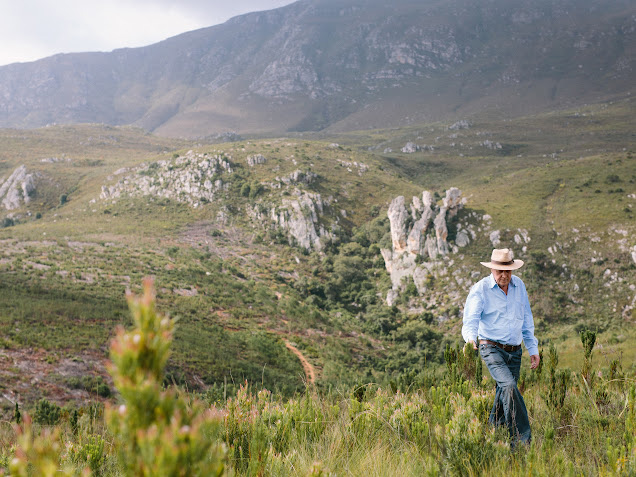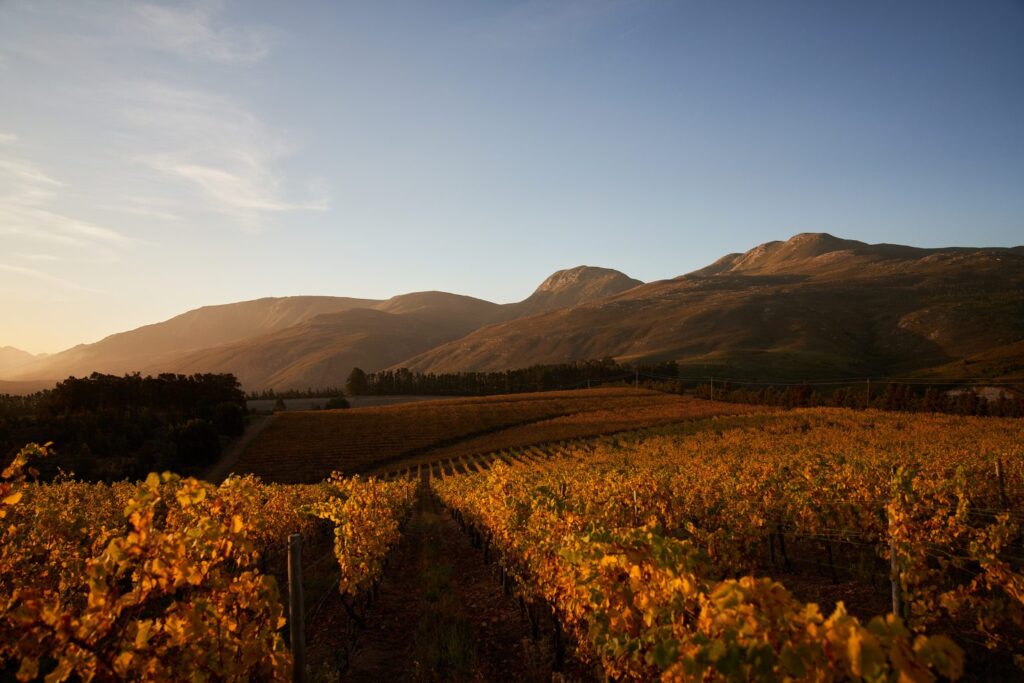From a wine production standpoint, South Africa is an incredibly interesting, varied and undervalued country. Historically, the vast majority of its output was ordinary, inexpensive table wines destined for discount retail outlets around the world. And while that category of South African wine still exists, the country’s reputation is now driven by quality-focused producers making some of the finest, most dynamic wines available.
The country produces approximately equal parts white and red grapes, known there as cultivars. The most popular among them are Chenin Blanc, Sauvignon Blanc, Chardonnay, Cabernet Sauvignon, Syrah and the polarizing South African creation, Pinotage. There are six primary wine regions which are broken down into 60+ appellations, or districts. The climate is generally considered Mediterranean, but coastal currants from Antarctica and mountains that dot the landscape cool down vineyards and create the opportunities for elegance and structure in the wines.
While many wine consumers are familiar with regions like Stellenbosch, Paarl and Constantia, far fewer are acquainted with the country’s lesser known areas like Robertson, Overberg, Walker Bay and, our focus here, the Elgin Valley. Sitting amongst the Hottentot-Holland mountain range, soils are a mixture of sandstone, decomposed shale, gravel and clay. The Valley is unique in that it is surrounded on all four sides by mountains. In fact, there are only four routes in, each one a picturesque mountain pass leading into the valley floor at 300 meters above sea level. The region is full of large and small rolling hills, resulting in varied exposures that create a myriad of microclimates and considerable variability in the glass.

Elgin is the coolest wine region in South Africa, with chilly nights and temperatures rarely rising above 30°C during the growing season. Accordingly, viticulturists eschew the country’s traditional Bordeaux varietals, instead focusing on cool-loving grapes like Sauvignon Blanc, Chardonnay and Pinot Noir. The latter two show the most promise, with some making favourable comparisons to their French homeland, Burgundy. Elgin wines tend to be high in acidity, but long hang times allow for full phenolic development and evolved flavours.
The Elgin Valley is also one of the country’s smallest and least-planted wine areas, with only 800 hectares under vine, as the rocky terrain, cool temperatures and low rainfall make growing grapes a challenging endeavour. By far, Elgin’s most important crop is apples. Of the region’s 7,000 hectares of agricultural plantings, 6,000 are dedicated to the orchard fruit. Increasingly, grape vines are being pulled in favour of the more profitable apples.
Paul Clüver Family Wines is the pioneer of Elgin Valley viticulture. This fourth-generation family-owned, family-run property has been in the hands of the Clüver family since 1896. The winery is especially well-known for its award-winning Chardonnay and Pinot Noir, which express the individualistic terroir of this unique region. A leader in sustainability and conservation, the vineyard and wine cellar form part of a larger holistic farming business. There are orchards, a Hereford stud and eco-tourism activities, including amphitheatre concerts on the farm. Half of the 2000+ hectare estate — which forms part of the Kogelberg Biosphere, a UNESCO world heritage site — has been set aside for conservation into perpetuity.


